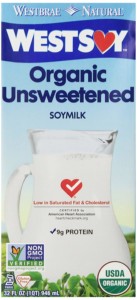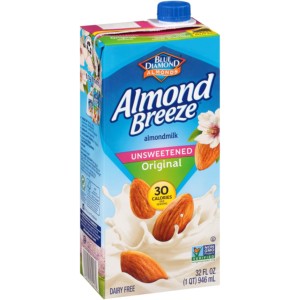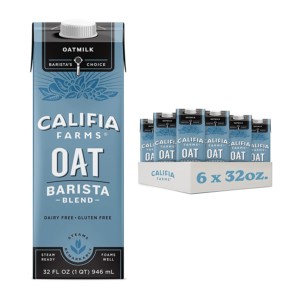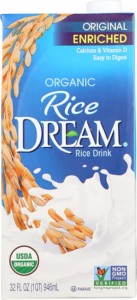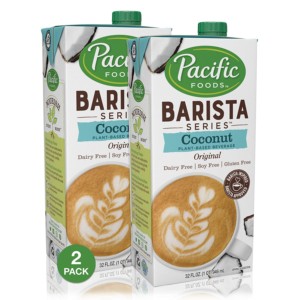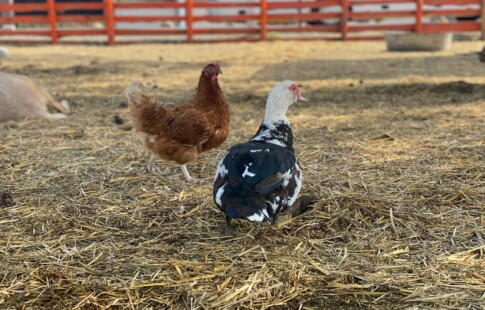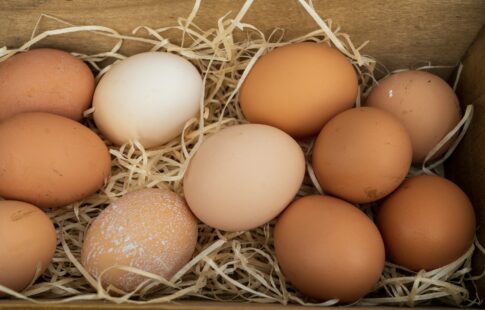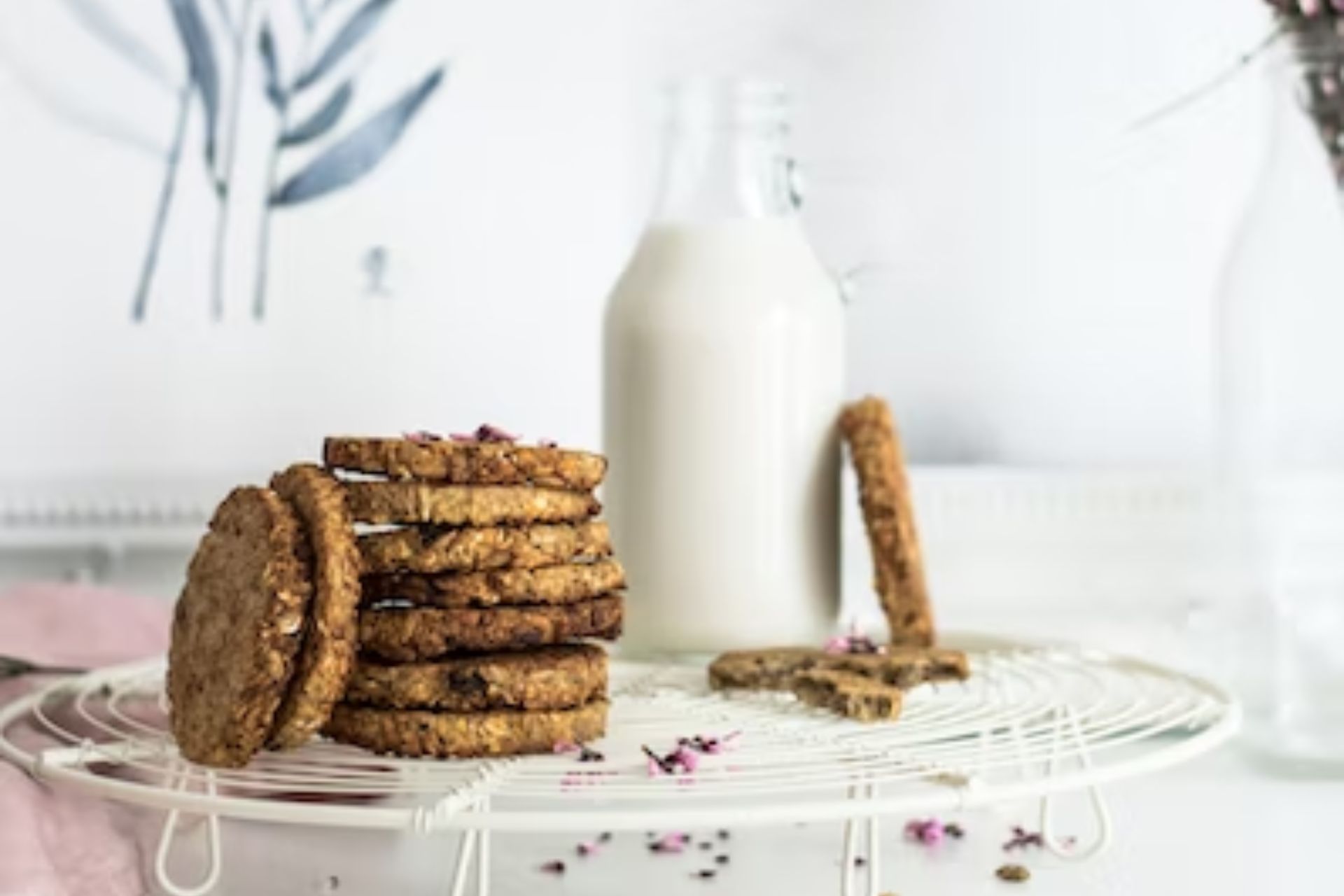
What Is The Most Sustainable Milk Substitute?
We are reader-supported. When you buy through links on our site, we may earn affiliate commission.
Not everyone can drink cow’s milk. With so many alternative kinds of milk out there, no one ever has to again. People who follow a vegan diet or have other restrictions can enjoy a type of milk that reminds them of dairy milk by the taste. Or they can choose something that has health benefits that cow’s milk does not. While you have plenty of options when you swap your dairy milk, you may want to know what the most sustainable milk substitute is so you can make the best choice for your conscience and the environment.
Common Types of Milk Substitutes
Everyone knows of at least one alternative form of milk. These are some of the most sustainable milk substitute options, but others aren’t actually so environmentally friendly. Still, one of these dairy milk substitutes may help you find a way to fulfill some of the dietary requirements you wouldn’t get in your daily nutrients otherwise.
1. Soy Milk
Soy milk was the most popular dairy milk alternative until almond milk arrived on the scene. It’s one of the best alternatives for people who miss drinking cow’s milk due to its similarities. Each glass boasts a high amount of protein, and it comes in several different flavors. Many people tend to avoid soy because it’s high in plant-based estrogen, which might have different effects on the body depending on how much estrogen is produced naturally.
2. Almond Milk
Almond milk has become a favorite of many people, probably due to its properties of being lower in calories and containing a good amount of healthy fat. However, it does have very little protein, which makes sense, as almond milk is mainly made up of water. You’ll have to pick a brand wisely for the most nutritious almond milk. The best almond milk can have up to or around 15% almond content, which ensures you’ll get more of the nutrients you want from a milk substitute.
3. Oat Milk
Oat milk is a new favorite, and many people love it because it can be consumed or used to cook with, just like dairy milk. It’s similar in calories to cow’s milk but double the carbs. Still, it boasts several health benefits in that it can help lower your LDL cholesterol levels and make you feel fuller.
This milk substitute is also one you can make at home. Oat milk making doesn’t require any special equipment, so you can easily make your own with the items you have in your own kitchen as long as you have some patience. If you have the time to devote to it, oat milk can be the most sustainable milk substitute, all thanks to how easily it can be made in an average household.
4. Rice Milk
Rice milk is a lesser-known milk substitute, but it does have an inoffensive neutral flavor that many people like. It has minimal protein but carries around the same calcium and Vitamin D as cow’s milk. It might also contain inorganic arsenic, which is found naturally in the environment. Some types of rice include more arsenic than others, but as long as you take care to avoid other products that could be heavy in arsenic and do your best to mitigate your risk, you should be fine to consume rice milk in regular quantities.
5. Coconut Milk
Coconut milk is one of the newest milk substitutes to break into popularity. It’s a very sweet cow’s milk alternative with about 30% of your daily required Vitamin D. Unfortunately, it also has very little calcium and protein, but it’s also low in carbohydrates. Since coconut oil can raise both HDL and LDL cholesterol, you should try to stick to coconut milk in moderation rather than in large quantities.
Which Is the Most Sustainable Milk Substitute for Consumers?
While a milk allergy and lactose intolerance are different, many people are affected and can’t consume regular dairy milk. Thus, the need for a substitute is imperative. The only issue you may run into is finding the most sustainable milk substitute, as the answer isn’t as clear-cut as it might seem.
Because different companies make their products differently, it can be hard to judge which category of milk substitute is most sustainable. In terms of greenhouse gases, soy milk and almond milk both create the lowest emissions overall. Almond milk uses much more water than soy milk, though. Oat milk uses less water than both of them, requiring only about 13 gallons of water per glass. Unfortunately, it’s also more expensive — but because you can make it at home, it’s also accessible.
Find the Most Sustainable Milk Substitute for You
Overall, the question of which is the most sustainable milk substitute is hard to answer. If you have the extra money to spend on oat milk, it’s an excellent eco-friendly choice. Try out all the substitutes and see which ones work best for you. There’s something to love about each one of them!
Share on
Like what you read? Join other Environment.co readers!
Get the latest updates on our planet by subscribing to the Environment.co newsletter!
About the author
Jane Marsh
Starting from an early age, Jane Marsh loved all animals and became a budding environmentalist. Now, Jane works as the Editor-in-Chief of Environment.co where she covers topics related to climate policy, renewable energy, the food industry, and more.
